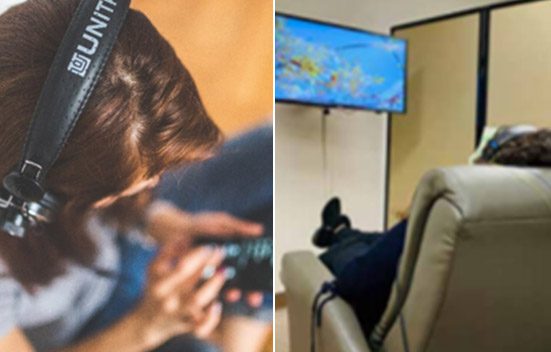Anxiety disorders are the most common mental illness in the U.S., affecting +40 million adults in the United States age 18 and older, or 18.1% of the population every year (Source: Anxiety and Depression Association of America). Anxiety disorders are highly treatable, yet only 36.9% of those suffering receive treatment.
Social anxiety disorder affects about 7% of Americans in any given year, and about 12% of people experience it at some point in their lives (Source: Harvard Health Publishing).
Many people from anxiety disorders go undiagnosed, and still others misuse alcohol (see our blog: How to Drink Responsibly), illegal or legal drugs, or over-the-counter pills, which tripled between 2000 and 2024
Prescriptions for anti-anxiety medications, rose 10.2% in the U.S. to 9.7 million in March 2020 from 8.8 million in March 2019, according to the latest data (Source: Health-Research Firm IQVIA. May 25, 2020). It should be worth noting that since the pandemic, we haven’t had any official stats.
AN ANXIOUS MIND IS AN ANXIOUS HEART!
Anxiety is one of the leading causes of insomnia and other sleep disorders. A person with anxiety is four times as likely to develop high blood pressure and is twice as likely to have a heart attack!
Anxiety can have its origin in traumatic situations, which are called PTSD.
PTSD affects approximately 3.5 percent of U.S. adults every year, and an estimated one in 11 people will be diagnosed with PTSD in their lifetime (Source: American Psychiatrist Association).
MEET YOUR ANXIETY NEUROTRANSMITTERS
There are three main neurotransmitters involved in anxiety. Norepinephrine triggers the anxiety response, while serotonin and GABA balance and quiet an overactive stress response.
When these three are out of balance, it causes communication issues between the brain’s rational center and its emotional center. And when your emotional center is overactive, and the rational area of your brain is unprepared to put its normal checks and balances on the emotional brain, anxiety turns on! Then your automatic center system is on overdrive. Your frontal lobe has lost control!
The frontal lobe is the part of the brain that makes us human in our cerebral cortex. The rational thinking center is in the top layer of our brain, especially the frontal cortex.
The higher-up brain center can control the more primitive fear centers down deep in the middle of your brain.
If you’d like to come and do an in-depth evaluation to see which part of your brain is the leading one in you at present, we’d love to help you.! Our training plans work by accessing these higher centers to control the overactivity of the lower ones.
WHEN DO YOU FEEL ANXIOUS?
When these higher centers are unable to control the fear centers. Neurofeedback personalized training for your brain helps convince the higher centers to take control by telling the lower centers, “Hey you, down there! There’s nothing to be afraid of”, or “Here is the solution to your worries”. Our programs help cool these fears and often get rid of them by eliminating the cause of these triggers or bringing you “the” solution.
THE ANXIOUS BODY
Anxiety may begin in the mind, yet because of the body-mind connection if the mind is out of balance, so is the body -This is why we experience a pounding heart, sleep problems, muscle tension, and even itching! Long-term anxiety increases the risk of hypertension, cardiovascular disease, and stroke, to name only a few!
PERFORMANCE-STRESS CONNECTION
 Nancy Andreasen wrote in her book “The Broken Brain” that people who are the brightest and most creative also tend to have a higher incidence of anxiety and depression.
Nancy Andreasen wrote in her book “The Broken Brain” that people who are the brightest and most creative also tend to have a higher incidence of anxiety and depression.
The same brain biochemistry and brain centers that drive creativity and high-performance people also make them prone to anxiety.
This performance-stress connection also explains why it’s important for high performers to be doubly careful about overmedication. For them, the best answer is to investigate our neurofeedback personalized brain training.
A STRESSFUL LIFE CAN BE THE ORIGIN OF ANXIETY
If you are experiencing a couple or more of the following symptoms, don’t wait, give us a call:
- Lack of focus
- Bad biz or life decisions
- Low energy
- Headaches
- Upset stomach, including diarrhea, constipation, or nausea
- Aches, pains, and tense muscles
- Chest pain and rapid heartbeat
- Insomnia
- Frequent colds and infections
- Loss of sexual desire and/or ability.
CHRONIC ANXIETY
You can have chronic anxiety from family or educational background. This means your brain has taken the habit of being anxious since childhood. As it is a “known way” of functioning for your brain, most of the time, you are not even aware of it.
 Ongoing or a long period of stress is called chronic stress generating chronic anxiety.
Ongoing or a long period of stress is called chronic stress generating chronic anxiety.
This is the cause or can exacerbate many serious health problems, including mental health problems, such as depression, anxiety, and personality disorders. Cardiovascular diseases include heart disease, high blood pressure, abnormal heart rhythms, heart attacks, and stroke.
What is unknown by the great majority of people is the role of anxiety and/or stress in the aging process.
Anxiety and or Stress also affect the length of your life! And the answer lies in an enzyme. Discovered by Carol Greider, Ph.D., a molecular biologist.
How does Anxiety/Stress shorten your life? The National Academy of Sciences in 2004 sums up the telomere-stress/Anxiety relationship.
- “Chronic stress/Anxiety erodes telomeres, impairs DNA replication, and thus accelerates aging”.
What you need to know: An enzyme called telomerase adds bases to the ends of telomeres. In young cells, telomerase keeps telomeres from wearing down too much and too quickly. But as cells divide repeatedly (due to Anxiety or stress), there is not enough telomerase and it influences replicative longevity!
ANXIETY/STRESS IS A STIMULUS THAT CREATES PRESSURE OR TENSION
Scientists have identified 3 reasons for anxiety and stress due to
- Survival, we need things such as food, water, medical attention, etc.
- Productivity, our need to be productive in an office or other work environment
- Connecting, experiences such as problems you need to resolve in your personal, social circle, or work relationships
IS THERE SUCH THING AS “GOOD ANXIETY”?
The same neurohormones that cause anxiety are also in charge of revving us up when we need to run faster, compete better, or meet a deadline!
Anxiety/Stress can be constructive! It helps you get the best out of yourselves and for you to explore new frontiers.
How to recognize good anxiety:
- Beginning that can be identified,
- Ending that can be recognized and met,
- Quickly finding the solution.
Good Anxiety/stress often stimulates your abilities!
Symptoms of unresolved anxiety/stress:
- Sense of helplessness or hopelessness,
- Feeling like our problem will never end,
- Feeling trapped.
How to Overcome the Symptoms?
- You have extra drinks, or you smoke,
- You overmedicate yourself,
- You lose your sense of joy,
- You decide it is part of aging, “nothing can be done”,
- You feel too tired to do anything! So “just let just forget it”. “I know enough I can cruise until the end”.
AT INNEROPTIMAL, YOUR BRAIN PEAK PERFORMANCE CENTER, WE PROPOSE A HEALTHY ALTERNATIVE!
Neurofeedback (or EEG biofeedback) which has been studied extensively for over 60 years with over 400 peer-reviewed studies has proven Neurofeedback sessions to be effective training for multiple use cases. Go to our “Programs” page and look at the main topics we help people with, such as Anxiety/Stress, Focus/ADHD, Sleep issues, Memory and Cognitive Functions, Traumas/PTSD, Loss & Grief, and Mood and Depression. This list is not exhaustive.
In each of our programs, we take into consideration that each brain is different and our programs adapt to your unique strengths and weaknesses.
Please note that we have been doing Neurofeedback in the US since 2007, 17 years now and Dr Danielle has been helping thousands of people understand their brain for a better living since 1968!
Now we are proud to say that we are global. You can enjoy the benefits of the latest in neurofeedback from the comfort of your home.
Call us at 760-633-3328, give the code: BetterBrain1224 and you will get our spring special available until the beginning of June 2024.





